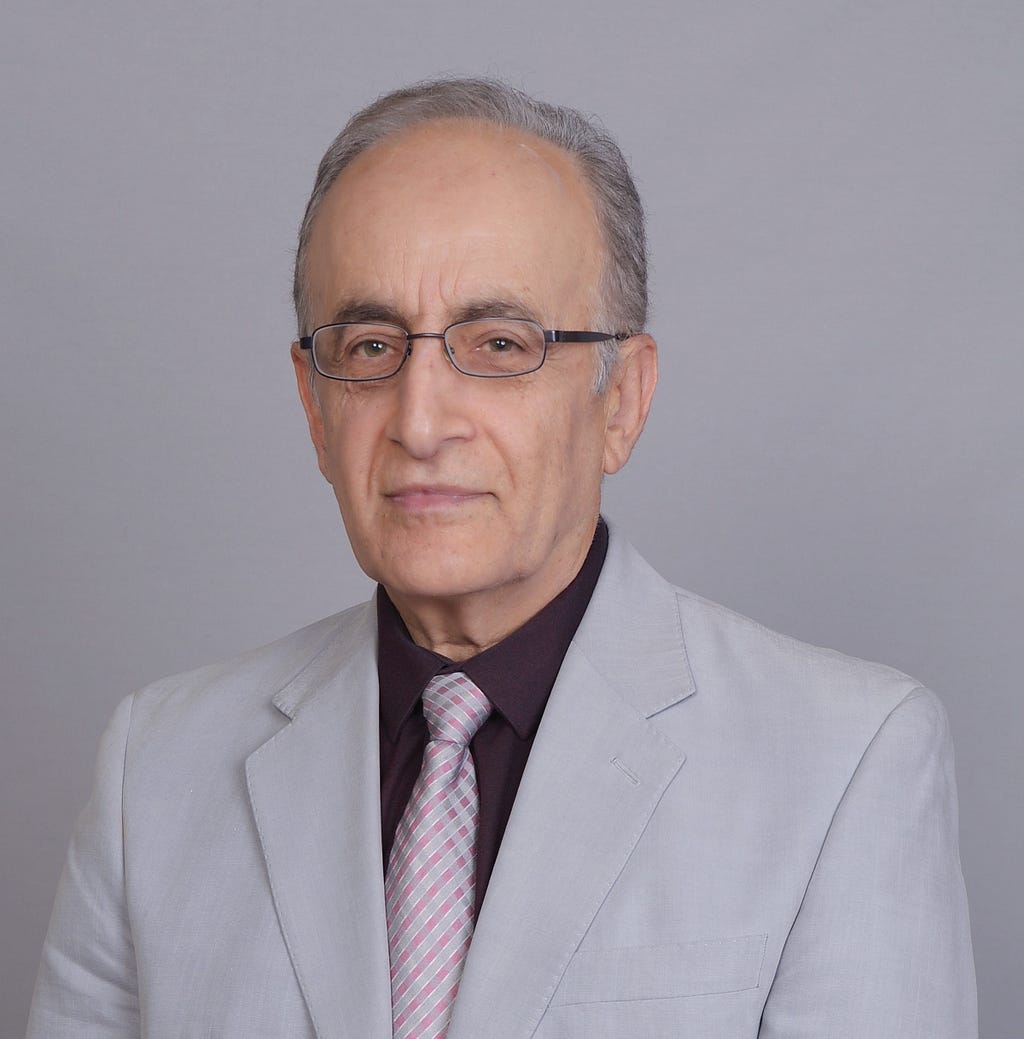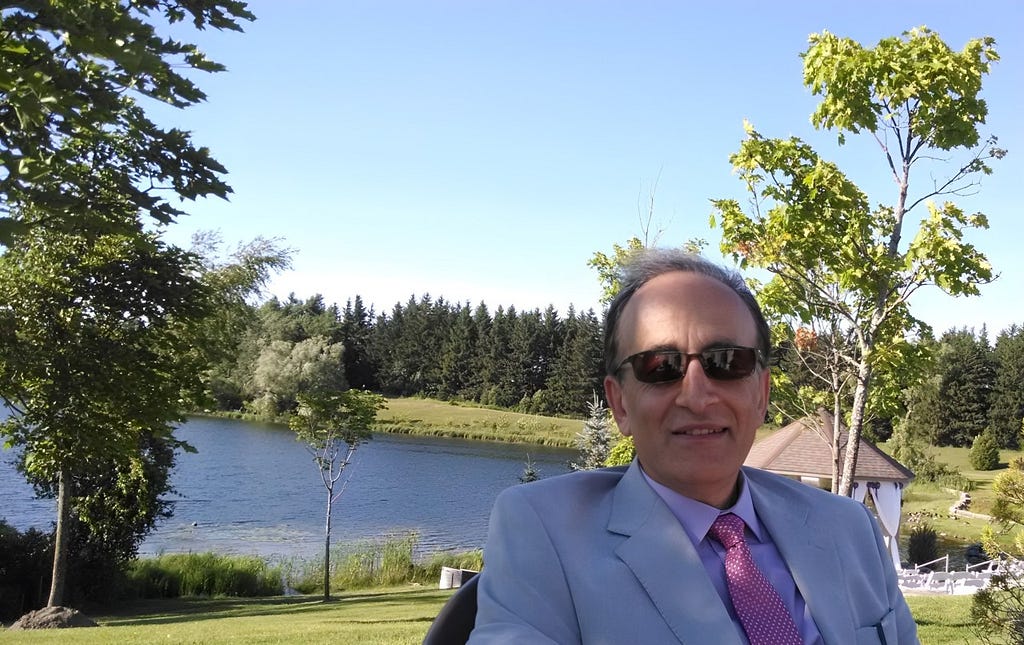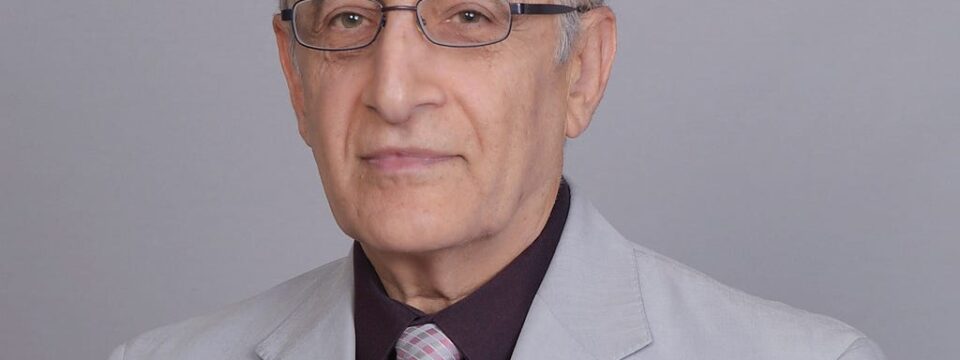
Leadership is the ability to build collective respect in others for your thoughts, your vision, and your advice. If you are a leader you don’t need to use the force of your managerial position to persuade people to follow your orders.
As part of my series about “authors who are making an important social impact”, I had the pleasure of interviewing Majid Riaziat.
Majid Riaziat is a physicist with an interest in social philosophy. He is a high tech entrepreneur with extensive experience in technology development.
Thank you so much for joining us in this interview series! Before we dive into the main focus of our interview, our readers would love to “get to know you” a bit better. Can you tell us a bit about your childhood backstory?
I was born in the historical city of Isfahan, Iran in a middle class family. I completed my primary and secondary school education in Iran. During that time I developed diverse interests in many topics including physics, philosophy, art, and poetry. I migrated to the US at the age of 18 and attended college at the University of Oklahoma where I picked Engineering Physics as my major. I moved to California for graduate school education where I received my PhD in Applied Physics from Stanford University.
When you were younger, was there a book that you read that inspired you to take action or changed your life? Can you share a story about that?
There were actually two books that affected my outlook on life profoundly. One was “The little Prince” by Antoine de Saint-Exupéry, and the other was “123-Infinity” by George Gamow. Little Prince depicted how grownups tend to lose their imaginations and become narrow minded.
123-Infinity was my older brother’s book, written and illustrated by a physicist. By explaining modern physics in plain language, this book piqued my interest in science.
Can you describe how you aim to make a significant social impact with your book?
Our technology is rapidly changing both us and our world. We are becoming a part of the developing Simorgh. But most of us are not aware of this, and therefore the transition is not being planned wisely. With the book “The Age of Simorgh” I hope to draw attention to how we can plan this wonderful future and avoid potential pitfalls.
Can you share with us the most interesting story that you shared in your book?
This is the story of an albino newborn who was abandoned by his parents due to the stigma associated with having an albino child. A wise and majestic bird (Simorgh) picks him up and raises him in her own nest. The young man is eventually reunited with his family and rises to prominence as a national hero.
What was the “aha moment” or series of events that made you decide to bring your message to the greater world? Can you share a story about that?
It always bothered me that civilized behavior and the rule of law never fully extended to international relations where the law of jungle still prevails. Lately I realized that no statesman had the ability to fix this. A military arms race, for example has a mind of its own and no one involved in the process has the power to stop it. Technological progress worsens the situation by breeding more specialists who are naturally removed from the path of strategic decision making.
Unfortunately it was not a cheerful aha moment, but the Covid pandemic that prompted me to devote some of my solitary time to compiling these thoughts into a book.
Without sharing specific names, can you tell us a story about a particular individual who was impacted or helped by your cause?
I know of one person who is writing a manifesto and a call to action based on the social analysis and predictions given in this book. His call to action focuses on both embracing the development of a peaceful Simorgh and preventing the emergence of military Simorghs who could become a threat to humanity.
Are there three things the community/society/politicians can do to help you address the root of the problem you are trying to solve?
Social awareness is the main thing that is needed. If enough people recognize the extreme danger in prolonging our current “world order”, pressure will mount to overhaul the system. With high technology and AI, a nation’s military has the potential to become autonomous, breaking free of any human supervision. To prevent this, a few things need to happen:
- War needs to be made obsolete in favor of the rule of law. Civilized neighbors don’t break each other’s windows when there is a dispute. They go to court instead. Nations should do the same, but our current world order prevents this.
- To open the way to the possibility of world peace, every country needs to form a fourth branch of its government. This fourth branch is to be in charge of international relations. So, in the US, the state department would become a coequal branch of the government. The goal is to isolate international relations from the volatile domestic politics, hoping that peaceful international treaties can result.
How do you define “Leadership”? Can you explain what you mean or give an example?
Leadership is the ability to build collective respect in others for your thoughts, your vision, and your advice. If you are a leader you don’t need to use the force of your managerial position to persuade people to follow your orders.

What are your “5 things I wish someone told me when I first started” and why?
- I wish someone had advised me not to overplan. It is easy to miss opportunities by overplanning, thinking that all you need is execution. The world is constantly changing and no plan should be too rigid to incorporate new variations.
- I wish someone told me to always seek advice from experienced people. Logic is never enough and cannot cover everything. There are nuances that inexperienced people will always miss regardless of how analytical they are.
- I wish someone told me that ideas are cheap despite their importance. It is reduction to practice that takes most of the effort.
- I wish someone had told me that the distance between design and prototype is a lot shorter than prototype to product.
- I wish I knew that being too early to market is worse than being a bit late.
Can you please give us your favorite “Life Lesson Quote”? Can you share how that was relevant to you in your life?
“It is more important to be kind than right”. I used to be forceful in trying to convince others to think as I did. This way I used to annoy people and get into unfriendly discussions. This “Life Lesson Quote” helped me have much more pleasant conversations with others including my family.
Is there a person in the world, or in the US with whom you would like to have a private breakfast or lunch with, and why? He or she might just see this, especially if we tag them. 🙂
I would love to have a private breakfast with Mr. Bill Gates of Microsoft because of the opinions he has expressed lately about the role of technology in human society.
How can our readers further follow your work online?
My book’s website is: www.simorgh.us
The associated Youtube page is: techtonic, and the Facebook page is “the age of simorgh.”
This was very meaningful, thank you so much. We wish you only continued success on your great work!
Social Impact Authors: How & Why Majid Riaziat Is Helping To Change Our World was originally published in Authority Magazine on Medium, where people are continuing the conversation by highlighting and responding to this story.
